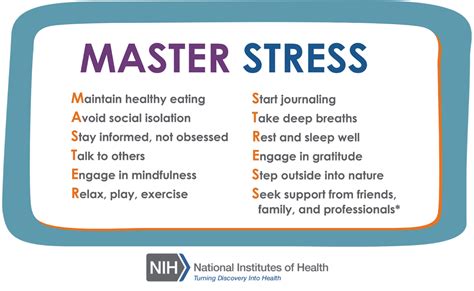Thrush is a common yeast infection that can affect both men and women. It’s caused by the Candida fungus, which is normally found in small amounts in the body. However, when Candida levels become too high, it can cause symptoms such as a white or yellow coating on the tongue, a sore or burning sensation in the mouth, and difficulty swallowing.

While thrush is not typically considered a serious health condition, it can be very uncomfortable and can lead to other health problems if left untreated. One of the most common questions people ask about thrush is whether or not it can make you feel sick and tired. The answer is yes, it can.
How Thrush Can Make You Feel Sick and Tired
There are a few ways that thrush can make you feel sick and tired. First, the infection can cause inflammation in the mouth and throat, which can lead to pain and difficulty swallowing. This can make it difficult to eat and drink, which can lead to dehydration and malnutrition. Additionally, the Candida fungus can release toxins into the bloodstream, which can cause a variety of symptoms, including fatigue, headache, and muscle aches.
In some cases, thrush can also lead to more serious health problems, such as sepsis. Sepsis is a life-threatening condition that occurs when the body’s immune system overreacts to an infection. Symptoms of sepsis include fever, chills, rapid breathing, and confusion. If you have thrush and you experience any of these symptoms, it’s important to seek medical attention immediately.
Treatment for Thrush
There are a number of different treatments for thrush, depending on the severity of the infection. Mild cases of thrush can often be treated with over-the-counter antifungal medications. More severe cases may require prescription antifungal medications or even surgery.
It’s important to follow your doctor’s instructions carefully when taking antifungal medications. If you don’t take the medication as prescribed, the infection may not clear up completely and could come back. Additionally, it’s important to practice good oral hygiene by brushing and flossing your teeth regularly and avoiding sugary foods and drinks.
Can Thrush Be Prevented?
There is no surefire way to prevent thrush, but there are a number of things you can do to reduce your risk of developing the infection. These include:
- Practicing good oral hygiene
- Eating a healthy diet
- Avoiding sugary foods and drinks
- Taking probiotics
If you have a weakened immune system, you are at increased risk of developing thrush. Talk to your doctor about ways to protect yourself from infection.
FAQs about Thrush
- Can thrush be treated with home remedies?
There are a number of home remedies that can help to relieve the symptoms of thrush, but they are not a substitute for medical treatment. Some effective home remedies include:
- Rinsing your mouth with salt water
- Eating yogurt or other probiotics
- Applying a topical antifungal cream
Yes, thrush can spread to other parts of the body, including the esophagus, stomach, and intestines. This is known as invasive candidiasis and is a more serious condition that requires medical treatment.
Yes, thrush can be cured with antifungal medications. However, it is important to follow your doctor’s instructions carefully to prevent the infection from coming back.
There is no surefire way to prevent thrush, but there are a number of things you can do to reduce your risk of developing the infection. These include:
- Practicing good oral hygiene
- Eating a healthy diet
- Avoiding sugary foods and drinks
- Taking probiotics
Conclusion
Thrush is a common yeast infection that can cause a variety of symptoms, including fatigue, headache, and muscle aches. While it is not typically considered a serious health condition, it can lead to other health problems if left untreated. If you think you may have thrush, it is important to see your doctor for diagnosis and treatment.
Table 1: Symptoms of Thrush
| Symptom | Description |
|---|---|
| White or yellow coating on the tongue | The most common symptom of thrush |
| Sore or burning sensation in the mouth | Can be mild or severe |
| Difficulty swallowing | Can make it difficult to eat and drink |
| Loss of taste | Can be a temporary or permanent side effect |
| Fatigue | Can be caused by the infection or by dehydration |
| Headache | Can be caused by the infection or by dehydration |
| Muscle aches | Can be caused by the infection or by dehydration |
Table 2: Causes of Thrush
| Cause | Description |
|---|---|
| Candida fungus | Overgrowth of the Candida fungus can lead to thrush |
| Weakened immune system | People with weakened immune systems are more likely to develop thrush |
| Antibiotics | Antibiotics can kill the good bacteria that help to keep Candida levels in check |
| Steroids | Steroids can suppress the immune system, making people more likely to develop thrush |
| Diabetes | People with diabetes have higher levels of sugar in their saliva, which can feed the Candida fungus |
| Pregnancy | Hormonal changes during pregnancy can make women more likely to develop thrush |
Table 3: Treatment for Thrush
| Treatment | Description |
|---|---|
| Over-the-counter antifungal medications | Can be used to treat mild cases of thrush |
| Prescription antifungal medications | May be necessary for more severe cases of thrush |
| Surgery | May be necessary to remove severe cases of thrush |
Table 4: Prevention of Thrush
| Prevention Method | Description |
|---|---|
| Practice good oral hygiene | Brush and floss your teeth regularly |
| Eat a healthy diet | Avoid sugary foods and drinks |
| Avoid antibiotics | Only take antibiotics when necessary |
| Take probiotics | Probiotics can help to keep Candida levels in check |
| Strengthen your immune system | Eat a healthy diet, exercise regularly, and get enough sleep |
















